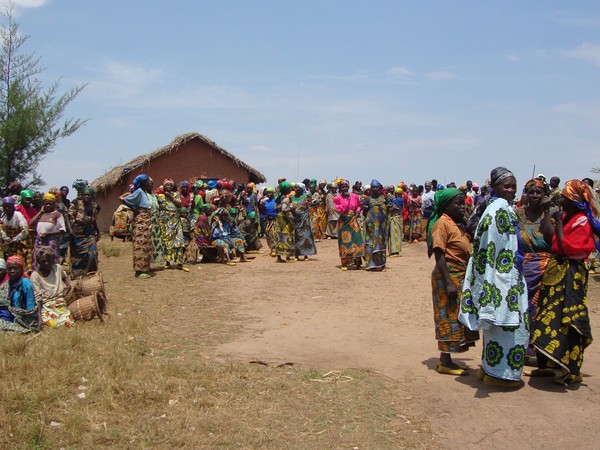A new regional programme to promote peace in the Great Lakes Region

Interpeace's Great Lakes programme is now fully operational. Interpeace is working to promote peace across the region together with six regional partners in Burundi, Rwanda and the North and South Kivu provinces of the Democratic Republic of the Congo. The goal of the 3-year initiative is to establish dialogue across borders that will reduce mistrust and create a better understanding among the people of the region. It will also enable people to reflect on the challenges to peace and contribute to increased collaboration across borders. The programme seeks to bring together various members of society, from the grassroots to decision-makers and provides them with the opportunity to discuss regional issues.
The need for a regional programme
Interpeace has been working in the Great Lakes region, namely in Rwanda and Burundi, for more than ten years. Based on this experience Interpeace understands that a lot of the issues in the region have cross border impacts and are not confined to just one country. A researcher who works for one of Interpeaces partner organizations, within the Democratic Republic of the Congo, explains: "I have realized that in this region, one cannot say that 'this is the problem of Rwanda' or 'this is the problem of the DRC.' We have experienced how a neighboring country's problem is a problem of all of us, because it will affect us throughout the region."
From the outset the programme has been focused on the needs of the people within the Great Lakes region. Initial consultations conducted by Interpeace revealed that people have a strong desire to talk to their neighbors in other countries despite the fact that there is still a lot of mistrust. It was also the popular opinion of the people consulted that neither, their governments or the ongoing regional peace initiatives fully understand their needs. They are often viewed as being disconnected from the realities, concerns and needs on the ground. Interpeace is trying to address this by looking at the conflict through the eyes of the people from all levels and sectors of society.
Four main obstacles to peace
The four main challenges to peace in the Great Lakes region identified by the people are: the presence of armed groups, the illicit exploitation of natural resources, weak governance systems and the political manipulation of ethnic identities and stereotypes. As a first step Interpeace and its regional partners concentrated on the issue of ethnic identities and stereotypes.
The value of a different approach
Interpeace's peacebuilding programme in the Great Lakes region will complement already ongoing peacebuilding efforts. Interpeace and its partners work with government officials, civil society and grassroots movements in the region to bring together people that normally wouldn't interact. By reaching out to different people, Interpeace's approach enables people to actively engage in peacebuilding activities.
Interpeace's programme provides a rare occasion for people from the different countries to come together and hear each other's perspectives on the conflict. The planned establishment of dialogue groups that will meet regularly, with participants from different regions, also illustrates the long-term character of the initiative. Local partners will use video to reach a broad audience within the region and inform them about the ongoing debates in these dialogue groups.
The Great Lakes programme
As a first step, local researchers heard from the people of Burundi, Rwanda and the North and South Kivu regions. The people expressed how they experience identity manipulation and identity based stereotyping in their daily lives, and the role this plays in the recurrent conflicts within the region. Through focus group discussions and individual interviews, the researchers listened to their account of what prevents them from living in peace.
The manipulation of identities
Interpeace works with six partner organizations in the region: the Center of Alert and Conflict Prevention (CENAP) in Burundi, the Institute of Research and Dialogue for Peace (IRDP) in Rwanda, the Pole Institute and the Center of Applied Judicial Sciences (CEJA) in North Kivu, Action for Peace and Unity (APC) and the Network of Organizational Innovation (RIO) in South Kivu.
Researchers from the new partner organizations in North and South Kivu and Interpeace's long-standing partners from Burundi and Rwanda spent six months talking to the people in their region. They sought to understand how the manipulation of identities and identity-based stereotypes pose a threat to peace. They gained a greater understanding of what different societal groups have in common, what divides them and possible ways forward.
A research report and a short film that summarized the findings and provided recommendations to address the problems that emerged, were presented at a regional stakeholder's forum in Nairobi last week.
Regional stakeholder forum
The regional stakeholder's forum brought together decision-makers, civil society organizations and other regional actors from Burundi, the DR Congo and Rwanda. Based on the outcomes of the research on identity-based manipulations and stereotypes, the participants will be asked to choose the issues that the programme is going to focus on. These issues will be the priorities for the programme over the next three years.
